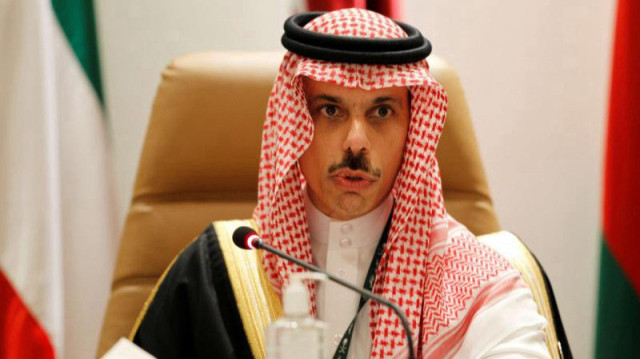Saudi Arabia Resolute on Palestinian Statehood Amid Tensions
Saudi Arabia reaffirms unwavering position on Palestinian statehood, rejecting allegations of a shift towards normalizing ties with Israel without addressing Palestinian rights.
Published February 07, 2025 - 00:02am

Image recovered from yenisafak.com
Saudi Arabia has consistently maintained a firm and unyielding stance on the issue of Palestinian statehood, emphasizing that the establishment of an independent Palestinian state with East Jerusalem as its capital remains a non-negotiable cornerstone of its foreign policy. This resolute position comes amid ongoing statements and proposals suggesting the contrary, as articulated by various leaders.
In a clear retort to recent claims by U.S. President Donald Trump, who suggested that Saudi Arabia might be open to normalizing relations with Israel without first resolving the Palestinian question, Saudi officials have reiterated their steadfast commitment to the Palestinian cause. The Saudi Foreign Ministry has underscored that diplomatic relations with Israel will only be considered with the establishment of a Palestinian state along the 1967 borders. This position was prominently restated by Crown Prince Mohammed bin Salman during major regional summits and through official communications to international bodies.
During a session at the Shura Council, the Crown Prince reiterated Saudi Arabia's unwavering support for Palestinian sovereignty. He emphasized the importance of mobilizing global support, urging more nations to recognize Palestine as a state eligible for full United Nations membership. Such actions would establish a foundation for peace in the Middle East, aligning with international resolutions that grant legitimate rights to the Palestinian people.
The Kingdom has consistently rejected any infringement upon Palestinian rights, openly opposing Israeli settlement expansions, land annexation, and any displacement efforts targeting the Palestinian population. According to Riyadh, these actions constitute violations of international law and act as significant impediments to achieving lasting peace in the region.
Further complicating the geopolitical landscape, Donald Trump proposed that the United States take a more active role by assuming 'ownership' of the Gaza Strip, describing it as a troubled area that could benefit from economic redevelopment. Saudi Arabia perceived this proposal as an oversimplification of complex historical and political nuances, thereby dismissing it without direct mention. The Kingdom's statements continue to send a clear message that peace cannot be achieved without addressing the core issue of Palestinian statehood.
Underlining its continuous advocacy for Palestinian rights, Saudi Arabia facilitates dialogues with other Arab-Islamic nations to consolidate support against policies undermining Palestinian aspirations. At the Arab-Islamic summit held in Riyadh, the Saudi leadership called on the international community to address the dire humanitarian conditions faced by Palestinians, stressing the responsibility of countries with geopolitical influence to reach an equitable resolution.
While Saudi Arabia's position remains deeply rooted in its long-standing historical ties and commitments within the Arab and Islamic worlds, it also underscores the Kingdom's strategic vision of stability across the Middle East. Thus, Saudi Arabia actively discourages attempts to sideline Palestinian issues in diplomatic dialogues, prioritizing sustainable solutions that uphold justice and regional integrity.
In conclusion, Saudi Arabia's forthright rejection of any normalization with Israel without securing Palestinian statehood reflects its unwavering allegiance to the Palestinian cause. This robust policy reinforces its role as a central player in Middle Eastern politics, with the Kingdom calling upon allied nations to respect the core tenets of peace and justice necessary for a harmonious future in the region.





